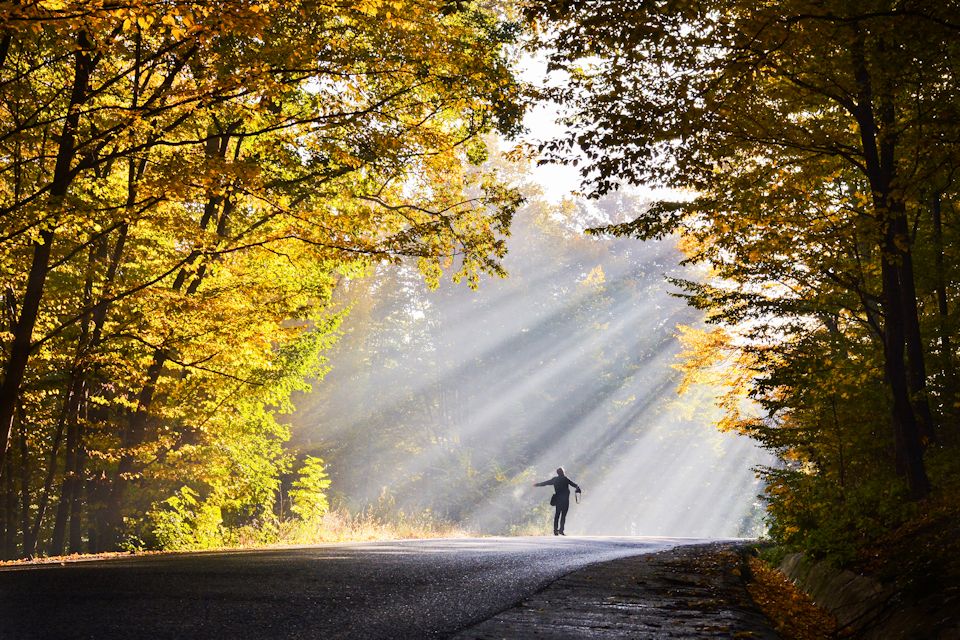Bishop David Bard reflects on Paul’s words to the Thessalonians, “Rejoice always.” He notes, “much of the time, that’s much harder than we think.” That’s where God’s grace enters in.
BISHOP DAVID BARD
Michigan Area United Methodist Church
November arrives so quickly. ZOOM is not only an online meeting platform, it is our experience of time in September and October. Suddenly it is November – zoom!
In the upper Midwest, fall often becomes winter in November. In November we are invited to make time to be thankful.
As followers of Jesus, we do not require a national proclamation to encourage thankfulness. Long before there was a United States, the apostle Paul wrote to the early Jesus community at Thessalonica: “Rejoice always…. Give thanks in all circumstances.” (I Thessalonians 5:16, 18)
I confess that these words of Paul can sometimes sound shallow and superficial. I enjoy language and poetic language – rhythm, rhyme, alliteration – and find that the rhyme “attitude of gratitude” often grates. I think of the words of Anne Lamott in her book Help, Thanks, Wow: “It is easy to thank God for life when things are going well. But life is much bigger than we give it credit for, and much of the time it’s much harder than we would like.” (44-45) Sometimes, the phrase, “attitude of gratitude” doesn’t account for how messy, painful, and difficult life can be.
Perhaps I struggle with the phrase because Paul’s words “give thanks in all circumstances,” get mushed into the notion that we should give thanks not “in” everything but “for” everything. Eugene Peterson’s rendering of the phrase leans in that direction, “Thank God, no matter what happens.” God may want to have a talk with me, but I don’t see myself thanking God for a cancer diagnosis, a hurricane, the death of a loved one, the dissolution of an intimate relationship, violence done against someone for their race, ethnicity, gender, gender identity, sexual orientation, or maybe just out of spite. Certainly, there are often surrounding circumstances in such instances for which I can be grateful – the care offered in the face of illness, the compassion shown after a disaster, the awakening that can happen in the face of injustice or violence, the repentance undertaken by a person who has committed a grievous wrong.
I can get to gratitude, but the phrase “attitude of gratitude” does not well describe the process. It seems to short-circuit seeing fully the horror, pain, injustice, and tragedy people experience. Please know, if the phrase works for you, don’t let me discourage you. My experience is that I can get to gratitude for the good in life because there is an underlying openness to the wonder, beauty, mystery, and joy of life even as I am open to the pain, devastation, tragedy, and wounding in life. That underlying openness to life is rooted in a deep sense of the unlimited, unfathomable, wild grace of God, as I know it in Jesus Christ, a grace for which I am always grateful.
Etty Hillesum captures something of this complex relationship between grace and gratitude for me when she writes in her diary, “there must be someone to live through it all and bear witness to the fact that God lived, even in these times.” Etty Hillesum was Jewish, deported from the Netherlands to Auschwitz where she died. So too the journal entry of Orthodox priest, Alexander Schmemann: “the knowledge of the fallen world does not kill joy, which emanates in this world, always, constantly, as a bright sorrow.” Both of these writings are found in an anthology edited by the poet Christian Wiman, Joy: 100 poems. I bought it around Thanksgiving 2017.
Friends, sometimes I get tired of reminding us of the difficulties, complexities, sorrows, pains, wounds, and injustices in the world – a pandemic, denominational division, national anger and impatience, faith communities declining, the persistence of racism and the resistance to struggling with it. To refuse to see them, though, is to partially shut our eyes, obscure our vision. Anne Lamott is right, “We and life are spectacularly flawed and complex” (Help, Thanks, Wow, 45). We need to see it all. Someone just sent me an essay in The Atlantic, written by an Episcopal priest, where the author admits her struggles figuring out church while the pandemic waxes and wanes, how best to gather, how to counter a trend started before the pandemic of declining religious participation. “I’m sick of innovating and pivoting,” she writes, and we can feel her pain.
And there is the unlimited, unfathomable, wild grace of God. No easy answers, but grace. Anne Lamott writes “grace can be the experience of a second wind, when even though what you want are clarity and resolution, what you get is stamina and poignancy and the strength to hang on” (Help, Thanks, Wow, 47).
Grace as a second wind, as stamina. And grace is often more. It is the beauty of a sunset or a painting. It is a gentle touch. It is music, it is poetry, it is dance. It is a walk in the sunshine, or sometimes the rain. It is holding a child. It is the strength to see pain and respond. It is bright sorrow. It is an icon of Jesus that pierces your soul. It is bearing witness that God lives and is gracious.
I carry within me a deep sense of the unlimited, unfathomable, wild grace of God, as I know it in Jesus Christ, a grace for which I am always grateful. You might say I have an underlying attitude of gratitude, even if I wouldn’t.
Make time this month for thankfulness and gratitude, and know I am grateful for you, for your partnership in ministry.
I am together with you on this Joyful Journey of Gratitude and Grace
Last Updated on November 9, 2021

